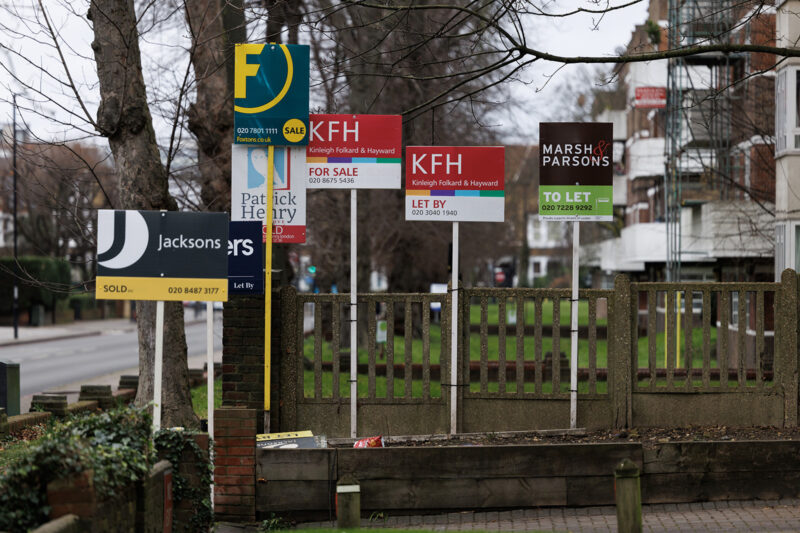Right to rent: no plans to scrap discriminatory housing scheme, Lords told
Labour peer Ruth Lister had proposed axing the policy as part of the renters’ rights bill — but the government refused

The government has refused to scrap the controversial “right to rent” scheme which forces landlords and letting agents to check prospective tenants’ immigration status.
In a House of Lords debate on Monday, Labour peer Ruth Lister proposed an amendment to the government’s flagship renters’ rights bill that could have abolished the scheme, which was singled out for criticism in the wake of the Windrush scandal and has made it harder for Black and Asian people to access housing.
It means that some would-be tenants — including British citizens from ethnic minority backgrounds and foreign nationals with a legal right to rent — could continue to be turned down for rental properties by landlords who find undertaking the proper rental checks too onerous.
In her Lords speech, Lister quoted a joint briefing by housing and migration groups on discrimination in the private rental sector, which said: “The lack of understanding around an individual’s right to rent has led many landlords to make decisions based on discriminatory factors such as an individual’s ethnicity or name.”
But Sharon Taylor, Labour peer and Lords minister for housing and local government, said the scheme would stay. “I simply add that there are no current plans to end the right to rent scheme,” she said, responding for the government.
Speaking to Hyphen, Lister said: “It was disappointing that the government aren’t prepared to call time on this discriminatory policy which supports the anti-discrimination aims of the bill.
“Here was an unusual opportunity to please landlords’, renters’ and migrants’ groups, yet it was not taken. But given the tenor of the white paper on immigration published the same day, that perhaps was not surprising.”
Keir Starmer has faced criticism this week following the publication of the government’s policy paper on immigration, which outlines plans to reduce net migration. Proposed measures include stricter language requirements, tighter work and student visas, and longer waits for settlement, which will mean people will need to wait at least a decade before they can seek indefinite leave to remain.
Right to rent was introduced by the 2014 Immigration Act as part of the then Conservative home secretary Theresa May’s hostile environment strategy, which was designed to make life as difficult as possible for migrants living in the UK.
In her speech on Monday, Lister referenced the Windrush Lessons Learned Review led by Wendy Williams — the then HM inspector of constabulary — which described right to rent as “one of the most contentious aspects of the hostile environment”.
Lister had told the Lords that the scheme is “incompatible with the government’s commitment to non-discrimination and fairness in the private rented sector”.
Taylor did not respond to Lister’s mention of Windrush. Lister also pointed out that she had failed to answer a question from Liberal Democrat peer Graham Tope, who agreed that right to rent was discriminatory and had asked whether the government had any evidence that the scheme had reduced illegal migration. Taylor then said she didn’t have the statistics to hand but would return to the Lords with the information.
Under the policy, landlords face fines of up to £20,000 or imprisonment for five years for renting to someone they have “reasonable cause to believe” does not have the right to rent in the UK.
In 2019, campaigners at the Joint Council for the Welfare of Immigrants, the Equality and Human Rights Commission, the Residential Landlords Association and Liberty successfully challenged the policy in court. A judge ruled that the scheme was unlawful and racially discriminatory because it caused landlords to discriminate against British citizens from ethnic minority backgrounds and foreign nationals who have a legal right to rent. It was also found that the policy has “little to no effect” on immigration control.
But the Home Office appealed, and in 2020, the court of appeal upheld the scheme, deeming it “justified”, despite acknowledging evidence that some landlords did discriminate against prospective tenants.
An analysis by Hyphen of census data found that 76% of Muslims in the UK hold a British passport while 19% hold passports for other countries and 5% don’t have a passport.
Confirming the government’s position, Taylor told the Lords: “There is a generous list of documents available that tenants can provide to prove their right to rent.”
She referred to codes of practice in right to rent legislation that set out how landlords can avoid unlawful discrimination, and added: “We have made it easier to carry out checks digitally and this simplifies the requirement for landlords or letting agents to understand the types of documents that renters have.”
The Ministry of Housing, Communities and Local Government was approached for comment.
 Newsletter
Newsletter













